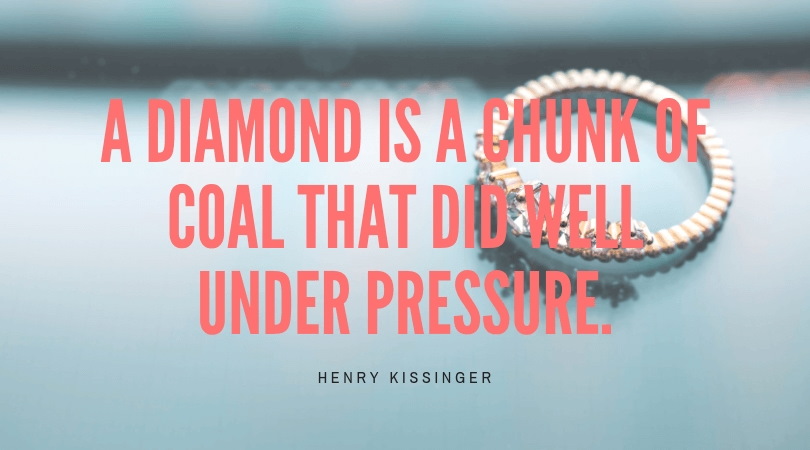One of my favorite contrasts of modern management gurus is David Allen’s retort to Stephen Covey.
Please keep in mind, I love the ideas, concepts, and thoughts of both of these people. I respect them both deeply. At the same time, I’ve found that even gurus disagree.
Stephen Covey, author of The 7 Habits of Highly Effective People, talks of finding true north, finding your mission. That it’s of the utmost importance to know where you are trying to go.
To this notion, David Allen, author of Getting Things Done, says, “Who cares which way your boat is pointing if it’s sinking?”
I need to give points to Mr. Allen on this one. I concur with Mr. Covey overall, but the pressure of the immediate does, at some point, as long as laws are not broken, become more important than Quadrant II.
Networking is a serious QII activity. It is something that is done for the long run. We build relationships, share opportunities, cultivate friendships.
The problem is if you’re really not sure how food is going to get put on the table, or if you don’t have someone to watch your 5 year old, or if you’re doing everything you can to support your recently disabled elderly parent, networking really just doesn’t seem that important.
Conversely, if the long run is completely ignored, valuable opportunities could be missed that could come about over time. Or, opportunities could be missed that reveal themselves at any particular moment. Not to create a panic here, but as Seneca advises, “Whatever can happen at any time can happen today.”
I think this is a big deal. It is one of the things that puts good people with strong talent and good ideas at a significant disadvantage. The tough part is these folks are also the people that likely have the values, experiences, or work ethic that others want to be around.
You see, we all have experiences. Places we’ve been, things we’ve seen, stories we’ve learned from, and so on. These experiences can be a part of what makes networking so valuable. We all bring so much to the table and to miss out on the grit, the tenacity, the resolve, the drive that others can learn from is indeed a loss.
There are many opportunities with amazing book clubs, excellent chamber networking events, and even the professional development seminars. And, yes, there are also great people to meet and great possibilities, but what’s the point in going if you have to risk being let go from your hourly wage position or if your young child REALLY shouldn’t be left alone.
So what to do about this? How does this get reconciled?
Those of you who are in this predicament: I’ve been there. And yes, it is tough. But the amazing opportunities that can develop in the long run are too great to ignore.
First things first: How to think about networking.
Networking is worth your time and attention even if done only every now and then. If we really look for it, the time is there somewhere in some way that would let us do something.
Think incremental gains or the compound effect when it comes to networking. Even a little every now and then helps in the long run.
Serendipity is real. It happens far too frequently to not embrace it and dive headlong into the fray. I’ve found it helpful to consider it somewhat like planning free time (I like to call it planned spontaneity). Plan time to be sure to do something, even if you don’t know really how it is going to go, but it is important enough to put or work to put on the calendar.
Next, be deliberate.
Find a way to attend some kind of networking opportunity at least once per quarter. Meet people. Establish connections.
There are events on weekends, weeknights, meetups, and associations. Find an interest, find a group. Networking is not necessarily 300 people in suits after work. There are many ways to network if we put our mind to it. And don’t worry about going every month – go when you can. yes, you may have to oblige some people with re-introducing yourself since you don’t see them frequently. That’s ok.
Lastly, keep your goals, aspirations, interests in mind – not just the immediate needs. The current situation will eventually pass even if it doesn’t feel like it, so don’t cut yourself short by disregarding your long term objectives. It has been amazing that by keeping in mind that I want to travel I somehow continue to meet people that have great tips, advice, and stories to share about it that just may help in the future!
Then, take action.
Try to target events that cater to your professional and personal aspirations, goals, and interests. At these types of events you’re more likely to be naturally curious and more motivated to attend.
Find a time to meet a connection over coffee/tea. Remit Sethi, an entrepreneur and author said, “The best $100 I ever spent? Taking people out for coffee.” Again, even if only once every few months, it’s worth it. Drink water if you have to. It’s ok, the people that you want to connect with won’t mind.
Speaking of keeping it frugal… Target the free events out there that welcome everyone or don’t require membership. Also, If you hear of a networking group that has a great reputation, see if you can attend an event once without paying to check it out – many times they’ll let you. If it’s a great fit, make a note of it as a group you’d like to join as finances permit.
Afterwards, stay in touch via social media with likes, posts, and simple messages. Additionally, if you really hit it off with someone and have a fabulous conversation, send a thank you note as a follow up.
All this being said, protect your time. If you don’t have a good experience at an event, don’t go back. This should be more about the mannerisms of the attendees and not so much about what you got out of it. The more important factors are whether people are welcoming, whether they strike up conversation easily, are they open to meeting someone new, etc. If not, try something else. Remember, networking is more about giving, but if you don’t get a good feeling about an event, especially more than once, stop going.
So what if you’re not in this predicament and you attend networking events?
Take a moment and scan the crowd from time to time. See if there is that one person that is standing a bit off to the side looking perhaps a bit uncomfortable or at least not as eager to engage in conversation, and go meet them.
If you end up meeting someone that is putting it all out there, hear them out and see what may come of it. Be curious and ask about them and their experiences. Is there any way you can help – even if it is a resource or recommendation.
Share the wealth. Introduce them to others or make suggestions when appropriate. This is perhaps one of the least frequent actions taken at networking events, but also perhaps one of the greatest. This is especially true when you really hit it off with someone new and think a friend would also enjoy meeting them. We are all there to meet new people, right?
Heck, beyond the conversation, are you are hiring or know someone that is? Wouldn’t you love to meet someone who has this kind of dedication and commitment?
Just to be clear, I’m not talking about charity with any of these suggestions. I’m talking about not discounting someone because of their current situation.
Think of it this way, Timothy Ferriss, Jim Carey, J.K. Rowling, and others all hit low points and had tough times yet look where they have gone. Remember that even though the people you meet have the experiences they have at that moment, you and they are not done yet! You both will be having more and different experiences.
And, this is really important because you never know when a pleasant conversation today could be the perfect connection in the future due to something that happens between now and then.
I hope the best for anyone in this situation. Stay strong. Keep connecting.









